2024 Shkreli Awards
JANUARY 7, 2025 — Welcome to the 8th annual Shkreli Awards, the Lown Institute’s top ten list of the worst examples of profiteering and dysfunction in healthcare, named for the infamous “pharma bro” Martin Shkreli.
Nominees for the Shkreli Awards are compiled by Lown Institute staff with input from readers of Lown Weekly. An esteemed panel of patient advocates, clinicians, health policy experts, and journalists help determine the winners. (press release | previous winners)
Texas medical school allegedly neglects to notify next of kin before selling body parts of deceased
A stock image of the body of a deceased person with a “for sale” tag attached to the big toe.
An NBC News investigation revealed that the University of North Texas Health Science Center (UNTHSC) in Fort Worth dissected and distributed unclaimed bodies without properly seeking consent from the deceased or their families. The center’s business supplied body parts to medical students as well as major for-profit ventures like Medtronic and Johnson & Johnson. The investigation found repeated failures at the Center and at the county level to contact family members who were, in fact, relatively easy to identify and reach.
Family members like those of Victor Carl Honey, a veteran entitled to a burial with military honors, were understandably disturbed. “It’s like a hole in your soul that can never be filled,” said Brenda Cloud, one of Honey’s sisters. “We feel violated.” It turns out that before he was cremated, a Swedish medical device maker paid $341 for Honey’s right leg, a Pittsburgh medical education company spent $900 for his torso, and the U.S. Army paid $210 for bones from his skull.
Following the NBC investigation, UNTHSC suspended its body donation program, terminated the officials responsible, and initiated both internal and external reviews to address the ethical breaches.
SOURCE: Mike Hixenbaugh, Jon Schuppe and Susan Carroll, The University of North Texas’ body parts business: Cutting up and leasing out the poor, NBC News
JUDGES’ COMMENTS:
Tell me again why distrust of medicine persists…

Harriet Washington
An incredibly macabre story of disrespect -“a final indignity” for “the bodies of the poor.”

Gary Schwitzer
Out of the mouths of babes; a taste for tongue-tie cutting intensifies
A stock image of an infant having its mouth held open for a frenectomy procedure.
Despite a lack of evidence showing effectiveness, baby tongue-tie cutting procedures are being touted as a cure for everything from breastfeeding difficulties to sleep apnea, scoliosis, and even constipation, according to a report by The New York Times. Typically recommended by lactation consultants and performed by dentists, the procedure involves cutting away the tissue that connects the tongue to the floor of the mouth. Serious complications are rare, but, according to the report, some babies experience enough pain that they refuse to eat, become malnourished, and require hospitalization. Most parents pay for the procedure out of pocket as it is rarely covered by insurance, and one doctor claimed he did as many as 100 per week at a cost of $900 each.
As interest in the procedure grows, equipment makers like Biolase are keeping pace. At an April 2024 event for pediatric dentists billed as “Tequila and Tongue Ties,” representatives from the laser device company trained attendees on the procedure before rounds of tequila shots and margaritas.
SOURCE: Katie Thomas, Sarah Kliff, Jessica Silver-Greenberg, Inside the Booming Business of Cutting Babies’ Tongues, The New York Times
JUDGES’ COMMENTS:
To take advantage of newborns is the worst unethical act ever.

Susan Rogers
Pain patients shocked by device maker’s billing practices
Zynex batteries from an Ebay listing
Zynex Medical, a company specializing in nerve stimulation devices used for pain management faces scrutiny over its billing practices. According to a report in STAT News, patients are receiving Zynex devices understanding the expense will be covered by insurance. Soon unsolicited supplies of items like batteries and electrode pads begin arriving on a regular schedule, often in quantities that exceed what is necessary and at costs that are inflated. In the end, either the insurance company pays or patients get stuck with a surprise bill.
STAT reports that almost 70% of Zynex’s $184 million in revenue in 2023 came from batteries and electrode pads. A former Zynex employee interviewed for the story said, “I feel like during my time there, I had a leading role in making people’s lives worse.” The company did not respond to STAT’s requests for comment.
SOURCES: Lizzy Lawrence, How a device maker inundated pain patients with unwanted batteries and surprise bills, STAT
JUDGES’ COMMENTS:
Before we get to the dodgy sales practices, can we please go back a step and look at the dodgy evidence for these devices?

Adam Elshaug
Emergency flight ends with $100K surprise for infant’s family
A stock image of a patient being wheeled away from a helicopter on a stretcher.
When Sara England’s infant son Amari experienced severe respiratory distress two months after open-heart surgery, doctors at Natividad Medical Center in Salinas, California, determined he required immediate specialized care. Amari was put on a ventilator and doctors arranged for an air ambulance transfer to a medical center in San Francisco, KFF Health News reported. The boy eventually recovered and returned home, but that’s when England got another shock. Cigna, her insurer, had refused to cover the 86-mile flight, leaving the family stuck with a bill for $97,599.
While the No Surprises Act of 2022 is supposed to protect patients from exorbitant out-of-network charges that come from situations like this, if an insurer deems the service “not medically necessary,” as Cigna did in this case, patients can still be on the hook for the bill. According to England, a Cigna representative reached out to offer assistance with the appeals process and told her the insurer attempted to contact the ambulance provider but had been unable to resolve the bill with them. In an email, the reporter told the Lown Institute that England said her final appeal was denied.
SOURCE: Molly Castle Work, A mom’s $97,000 question: How was an air-ambulance ride not medically necessary?, KFF Health News
JUDGES’ COMMENTS:
A heart-breaking and budget-busting example of a hospital taking advantage of a distraught mom who is following medical advice.

Patricia Kelmar
Rivers of cash flow from apparent Medicare catheter con
An AI generated image of a man holding a large number of urinary catheters, some with price tags.
In 2023, a massive upsurge in Medicare billing for urinary catheters left many patients shaking their….heads. As many as 450,000 beneficiaries had bills for catheters submitted on their behalf in 2023, representing an 800% increase over previous years. Just seven suppliers were responsible for $2 billion of these suspicious charges. When the New York Times looked into one of those suppliers, the curiously named “Pretty in Pink Boutique,” they found no medical business at its address and that its phone number rang a random auto body shop.
“I hate the notion of anybody ripping off Medicare,” said Linda Hennis, a retired nurse who had 2,000 urinary catheters billed in her name that she did not need or receive. “So many of us rely on it. It’s just plain ethically wrong.”
SOURCE: Sarah Kliff, Katie Thomas, Staggering Rise in Catheter Bills Suggests Medicare Scam, The New York Times
JUDGES’ COMMENTS:
Theft, pure and simple… from both public and private resources.

Don Berwick
This story highlights why CMS needs to invest more in preventing waste, fraud and abuse.

Merrill Goozner
No cash, no credit, no chemo: Private equity hospital’s passion for profits sends cancer patients packing
A stock image of a person holding a cardboard sign with the writing “NEED MONEY FOR CHEMO PLEASE HELP!”
Memorial Medical Center in Las Cruces, New Mexico, faces allegations of refusing cancer treatment to patients or demanding upfront payments, even from those with insurance. Previously a nonprofit, the hospital is now operated as a for-profit facility by Lifepoint Health, owned by private equity firm Apollo Global Management. Memorial’s financial assistance policy, which once included cancer treatment, was altered in 2023 to exclude it.
The hospital denies turning away patients, but multiple reports, patient testimony, and internal documents suggest otherwise, according to NBC News. Though promotional literature from Memorial says, “Delivering care to all of our neighbors, regardless of their ability to pay, is foundational to our mission and our commitment to our community,” some local cancer patients have had to travel hundreds of miles away to get the care they need.
SOURCE: Gretchen Morgenson, Cancer patients say this hospital turned them away, NBC News
Note: The Lown Hospitals Index is referenced in this article.
JUDGES’ COMMENTS:
Keeping people from care is violent and doing that systematically and for money is simply evil.

Andrews Goldstein
Oncologist leaves unconscionable trail of alleged misdeeds, some of them deadly
An edited image of St. Peter’s Health campus from Google Maps.
As an oncologist at St. Peter’s Hospital in Helena, Montana, Dr. Thomas C. Weiner was celebrated for his exceptional patient care and became the hospital’s highest-earning physician. However, according to reporting by ProPublica, a troubling pattern of patient harm and suspicious deaths eventually came to the surface. In one case, according to the report, Weiner subjected a patient to unnecessary cancer treatments for over a decade. When the patient died, the medical examiner found no sign of cancer, leaving a drug used for chemotherapy as the likely cause of death. In other cases, the reporting shows evidence that Weiner provided disturbingly high doses of barbiturates to facilitate death in seriously ill patients, when those patients may not have actually been close to death. Evidence is also presented that he altered end of life plans without consulting patients, prescribed high doses of opioids to patients that did not need them, and often failed to document his work.
Weiner was fired from St. Peter’s in 2020, and his suit claiming wrongful termination and defamation is now under appeal at the Montana State Supreme Court. A federal suit was filed against Weiner in 2024 related to his billing practices. Weiner has consistently denied any wrongdoing and his attorneys have filed a motion to dismiss the case.
SOURCE: J. David McSwane, Eat What You Kill, ProPublica
SEE ALSO: “I Thought He Was Helping Me”: Patient Endured 9 Years of Chemotherapy for Cancer He Never Had, ProPublica
JUDGES’ COMMENTS:
There’s no oversight. When a physician is billing millions to Medicare, no follow up occurs to check on the cause.

Amy Holden Jones
Where was this guy’s hospital when this was happening? Oh yeah, it was looking the other way because he was bringing in money.

Shannon Brownlee
Drug company pursues high dose of profits despite risks to patients
A stock image of the Amgen name on the side of a building.
Amgen’s cancer drug, Lumakras, was granted accelerated FDA approval in 2021 at a daily dose of 960 mg. A subsequent trial indicated that while the 960 mg dose extends life by a month more on average, a lower 240 mg dose offers similar efficacy with reduced toxicity. That should be good news for patients looking to reduce the diarrhea, nausea, vomiting, and mouth sores that can occur. However, despite these findings, Amgen continues to market it at the higher dosage and is moving forward with the process of final FDA approval at that level.
Pharmacologist Donald Harvey who was interviewed by KFF Health News for the story, criticized the strategy of pursuing a maximum tolerated dosage and said Lumakras is “a poster child for incredibly bad development.” There’s no sign that Amgen, which stands to lose $180,000 a year per patient at the lower dosage, has any interest in changing its course. A spokesperson for the company noted that the FDA has accepted 960mg as the recommended dosage.
SOURCE: Arthur Allen, Amgen Plows Ahead With Costly, Highly Toxic Cancer Dosing Despite FDA Challenge, KFF Health News
JUDGES’ COMMENTS:
How did this become acceptable behavior even for pharma?

Susan Rogers
This recidivist company has no shame when it comes to pursuing harmful practices to pad its bottom line.

Merrill Goozner
Corporate healthcare behemoth exercises crushing power
An AI generated image depicting physicians in meat grinder with change coming out the other end and dollar bills in the background.
What started out as a small Minnesota health insurer is now the fourth largest business in the nation, controlling nearly 90,000 physicians and acquiring influence across the breadth and depth of the healthcare industry. According to a STAT News investigation, UnitedHealth exploits its vast physician network to maximize profits, often at the expense of patients and clinicians. Doctors interviewed by STAT report pressure to reduce time with patients and to practice aggressive medical coding tactics that make patients seem as sick as possible.
As the largest provider of Medicare Advantage plans, UnitedHealth earns higher reimbursements from the federal government when their patients appear to have more health challenges. According to STAT, this tactic may have allowed the company to take tens of billions in additional payments from taxpayers over the past decade. UnitedHealth faces a federal lawsuit for this behavior as well as an ongoing antitrust investigation. The company denies any wrongdoing.
SOURCE: Bob Herman, Tara Bannow, Casey Ross, and Lizzy Lawrence, How UnitedHealth harnesses its physician empire to squeeze profits out of patients, STAT News
NOTE: A Lown Institute analysis of Medicare claims was featured in a different article in the same series
JUDGES’ COMMENTS:
UnitedHealth is a monster monopoly feeding on patients, families, doctors, and taxpayers. Break it up.

Allen Francis
Wreck-it Ralph: CEO follows private equity playbook to bankrupt community hospitals while pocketing plenty
A chair reserved for Ralph de la Torre at a September 2024 U.S. Senate HELP Committee hearing on the bankruptcy of Steward Health Care. SOURCE: Wikimedia Commons
Dr. Ralph de la Torre, as CEO of Steward Health Care, allegedly orchestrated a dramatic healthcare debacle by prioritizing private equity profits over patient care. Fueled by debt and sale-leaseback schemes, Steward’s expansion and subsequent fall into bankruptcy left hospitals gutted, employees laid off, and communities underserved, the Boston Globe reported. De la Torre seems to have made out just fine, however, reportedly walking away with more than $250 million over the last four years as hospitals tanked.
Asked to testify before a Senate committee about the hospital system’s failure, De La Torre refused and was held in contempt of Congress. He resigned from Steward, now the subject of a federal criminal investigation, in September 2024. A website created by a communications firm disputes many of the claims against de la Torre.
SOURCE: Liz Kowalczyk, Chris Serres, Jessica Bartlett, Elizabeth Koh, Mark Arsenault, and Yoohyun Jung, They died in hallways. In line. Alone. Their deaths are the human cost of Steward’s financial neglect., The Boston Globe
JUDGES’ COMMENTS:
This is a cautionary tale for anyone who thinks the “efficiency” of capitalist healthcare is a good thing.

Jeanne Lenzer
Apparently it pays well to “steward” patients and a system through the gates of hell.

Adam Elshaug
Judges for 2024 Shkreli Awards

Carole Allen, MD, MBA
Past president of the
Massachusetts Medical Society
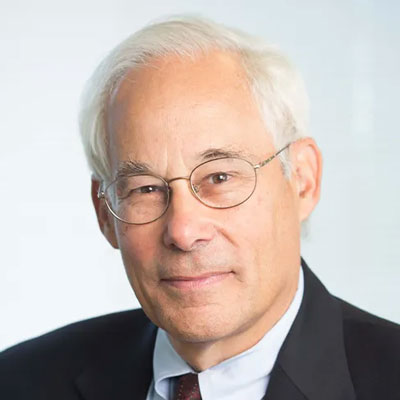
Don Berwick, MD, MPP
Senior Fellow, Institute for Healthcare Improvement; Lecturer of Health Care Policy, Harvard Medical School
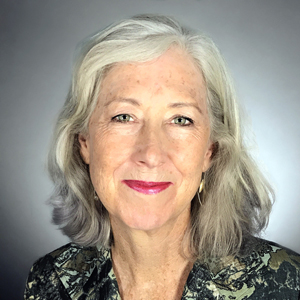
Shannon Brownlee
Former senior vice president of the Lown Institute

Lilia Cervantes, MD
Director of Immigrant Health and a professor at the University of Colorado School of Medicine; 2024 Lown BLASR Award winner;
@cervantes-lily1bsky.social
@cervantes_Lily1
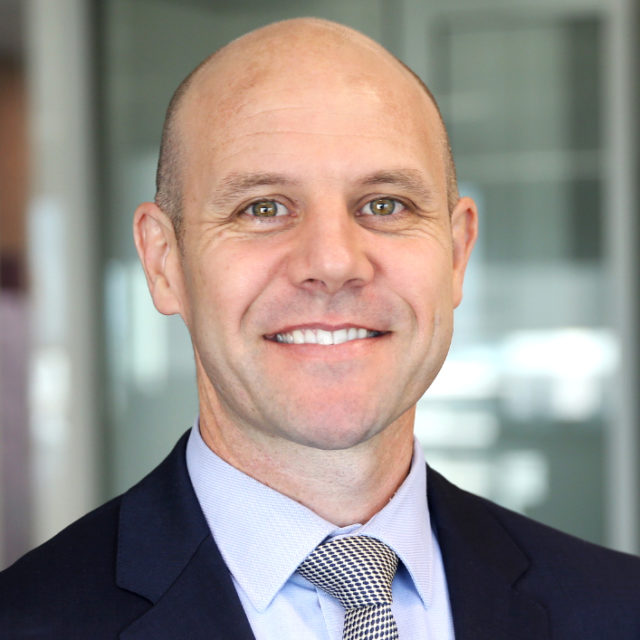
Adam Elshaug, MPH, PhD
Director of the Centre for Health Policy at University of Melbourne; Senior fellow at the Lown Institute
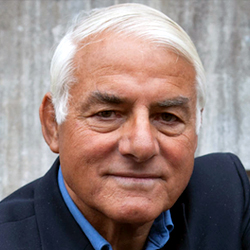
Allen Frances, MD
Professor and chair emeritus at Duke University School of Medicine. @AllenFrancesMD

Patricia Gabow
Chair of the Lown Institute board of directors; former CEO of Denver Health; Author of The Catholic Church and Its Hospitals

Andrew Goldstein, MD
Assistant professor, NYU School of Medicine; Member, Doctors Council; @AndrewMakeBluesky, @AndrewMakeTweet
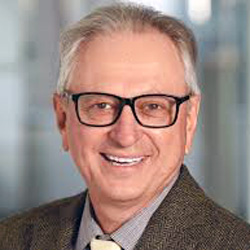
Merrill Goozner
Editor and Publisher of GoozNews; @gooznews.bsky.social

Paul Hattis
Physician-Attorney and Senior Fellow at the Lown Institute

Amy Holden Jones
Creator of the show
“The Resident”

Patricia Kelmar
Senior Director, Health Care Campaigns, US PIRG

Jeanne Lenzer
Independent medical investigative journalist; www.jeannelenzer.com

Victor Montori
Founder of The Patient Revolution; Author of Why We Revolt, @vmontori.bsky.social

Susan Rogers, MD
Past president of Physicians for a National Health Program
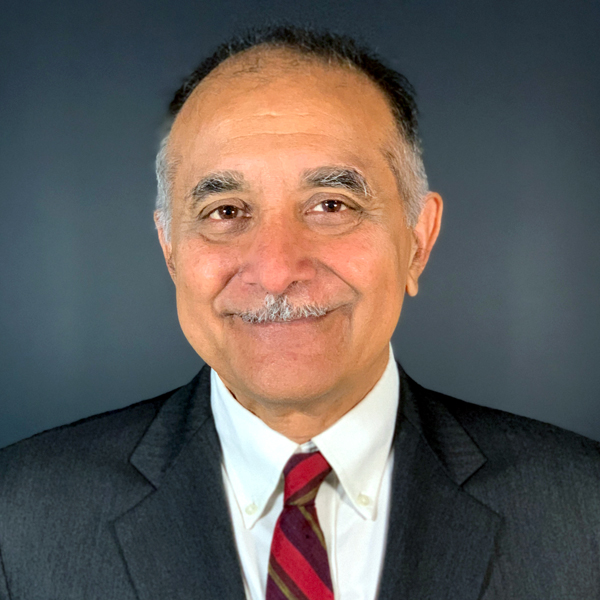
Vikas Saini, MD
President of the Lown Institute
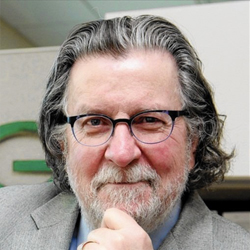
Gary Schwitzer
Adjunct associate professor at U of Minnesota School of Public Health; Author on Substack, @garyschwitzer, @garyschw.bsky.social

John Sellers
Co-founder of The Other 98%
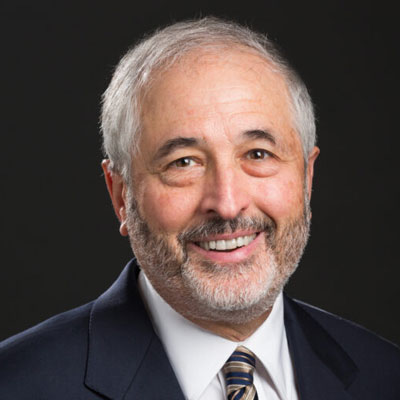
Robert Steinbrook, MD
Health Research Group Director, Public Citizen

Harriet Washington
Lecturer for Columbia University Bioethics M.S. program; author of Flacking for Big Pharma and Deadly Monopolies

Casey Quinlan (1952-2023)
In loving memory of Casey Quinlan, also known as Mighty Casey, an outspoken patient activist who also helped with Shkreli judging for many years.
